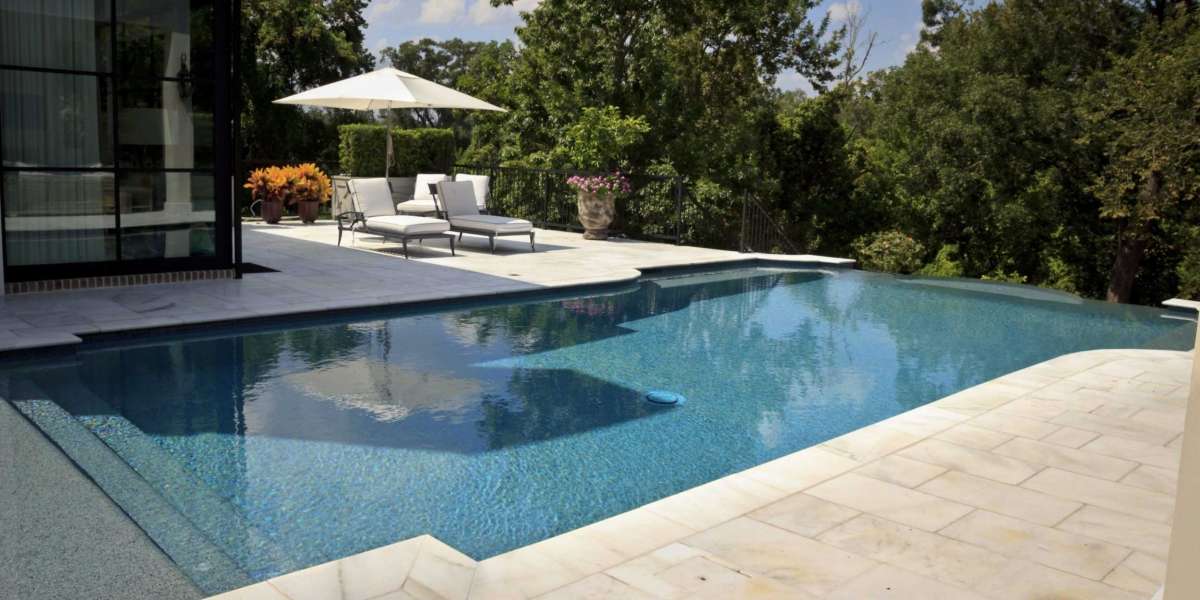Keeping your pool in top-notch condition isn't just about skimming leaves and balancing chemicals. Sometimes, it involves a bit of a makeover, and that's where pool plaster refinishing comes into play. Whether you're aiming to revive an aging pool or give your backyard oasis a fresh new look, understanding the ins and outs of pool plaster refinishing is key.
What is Pool Plaster Refinishing?
Definition and Purpose
Pool plaster refinishing is the process of applying a new layer of plaster to the interior surface of your swimming pool. This new layer not only improves the pool's appearance but also restores its structural integrity, providing a smooth and watertight finish.
Common Signs You Need Refinishing
How do you know when it's time for a refinish? Look out for cracks, discoloration, and a rough surface. If your pool starts feeling like sandpaper rather than silk, it’s probably time for some TLC.
Types of Pool Plaster
Traditional White Plaster
The classic choice for many pool owners, traditional white plaster is timeless and budget-friendly. However, it might not be as durable as other options.
Aggregate Plaster
This type incorporates pebbles, quartz, or glass beads into the plaster, offering a more textured and durable finish. It comes in various colors and can add a unique aesthetic appeal to your pool.
Polished Finishes
For a smoother and more luxurious finish, polished plasters, such as polished marble or quartz, are excellent choices. They are durable and offer a sleek, attractive look.
Benefits of Pool Plaster Refinishing
Enhanced Aesthetic Appeal
A newly refinished pool can dramatically enhance the look of your backyard, making it more inviting and visually appealing.
Improved Durability
Refinishing your pool can extend its lifespan by protecting it from leaks, stains, and other damage.
Increased Home Value
A well-maintained and aesthetically pleasing pool can boost your property's market value, making it a worthy investment.
When to Consider Pool Plaster Refinishing
Age of the Pool
Most pool plasters last between 7 to 15 years. If your pool is approaching this age range, it might be time to consider refinishing.
Visible Cracks and Stains
Cracks, stains, and discoloration are not just unsightly; they can also indicate underlying issues that need addressing.
Rough Surface
A rough pool surface can be uncomfortable and even cause minor injuries. Refinishing can restore the smooth texture of your pool.
DIY vs. Professional Refinishing
Pros and Cons of DIY
DIY refinishing might save you money, but it’s a complex and labor-intensive process that requires specialized tools and skills.
Advantages of Hiring a Professional
Professional refinishing ensures a high-quality finish and can save you time and hassle. Plus, professionals can spot and address any underlying issues that you might miss.
The Pool Plaster Refinishing Process
Initial Inspection and Draining the Pool
The first step involves inspecting the pool for any structural issues, followed by draining the water.
Surface Preparation
The old plaster is removed, and the surface is cleaned and prepped for the new plaster layer.
Applying the New Plaster
The new plaster is applied, often in multiple layers, to ensure a smooth and durable finish.
Curing and Refilling the Pool
The plaster needs time to cure properly before the pool can be refilled with water. This curing period is crucial for the longevity of the plaster.
Cost of Pool Plaster Refinishing
Factors Affecting Cost
Several factors influence the cost, including the size of the pool, the type of plaster used, and the complexity of the job.
Average Cost Estimates
On average, pool plaster refinishing can cost anywhere from $4,000 to $10,000. It’s best to get multiple quotes to ensure you’re getting a fair price.
Budgeting Tips
Plan ahead and set aside a budget for pool maintenance and refinishing. Regular upkeep can help you avoid costly repairs in the long run.
Choosing the Right Pool Plaster Material
Consider Your Budget
While traditional white plaster is the most affordable, other materials like aggregate or polished finishes might offer better durability and aesthetics.
Aesthetic Preferences
Think about the look you want to achieve. Aggregate and polished finishes come in various colors and textures that can complement your backyard design.
Longevity and Maintenance Needs
Some plaster types require more maintenance than others. Consider how much time and effort you’re willing to invest in upkeep.
Maintaining Your Newly Refinished Pool
Regular Cleaning
Regularly clean your pool to prevent algae and debris buildup. A clean pool is not only more inviting but also prolongs the life of your plaster.
Balancing Pool Chemicals
Keeping the chemical balance in check is crucial to prevent staining and deterioration of the plaster.
Seasonal Maintenance Tips
Perform seasonal maintenance checks to address any minor issues before they become major problems. This includes checking for leaks, ensuring the pump and filter are functioning properly, and winterizing your pool if necessary.
Common Mistakes to Avoid
Skipping Professional Help
While DIY might be tempting, skipping professional help can lead to subpar results and potentially costly mistakes.
Ignoring Maintenance Post-Refinishing
After refinishing, it's essential to maintain your pool properly to extend the life of the new plaster.
Choosing the Wrong Material
Not all plaster materials are created equal. Choose one that fits your budget, aesthetic preferences, and maintenance capabilities.
Conclusion
Refinishing your pool plaster can breathe new life into your swimming pool, enhancing both its appearance and durability. Whether you opt for a classic white plaster or a more sophisticated aggregate finish, taking the time to refinish your pool is a worthwhile investment. Remember to consider professional help for the best results and maintain your pool regularly to enjoy its benefits for years to come.
FAQs
How Long Does Pool Plaster Last?
On average, pool plaster lasts between 7 to 15 years, depending on the type of plaster and how well the pool is maintained.
Can You Change the Color of Your Pool Plaster?
Yes, modern plaster options come in various colors and finishes, allowing you to customize the look of your pool.
How Often Should You Refinish Your Pool?
It’s generally recommended to refinish your pool every 10-15 years, or sooner if you notice significant wear and tear.








